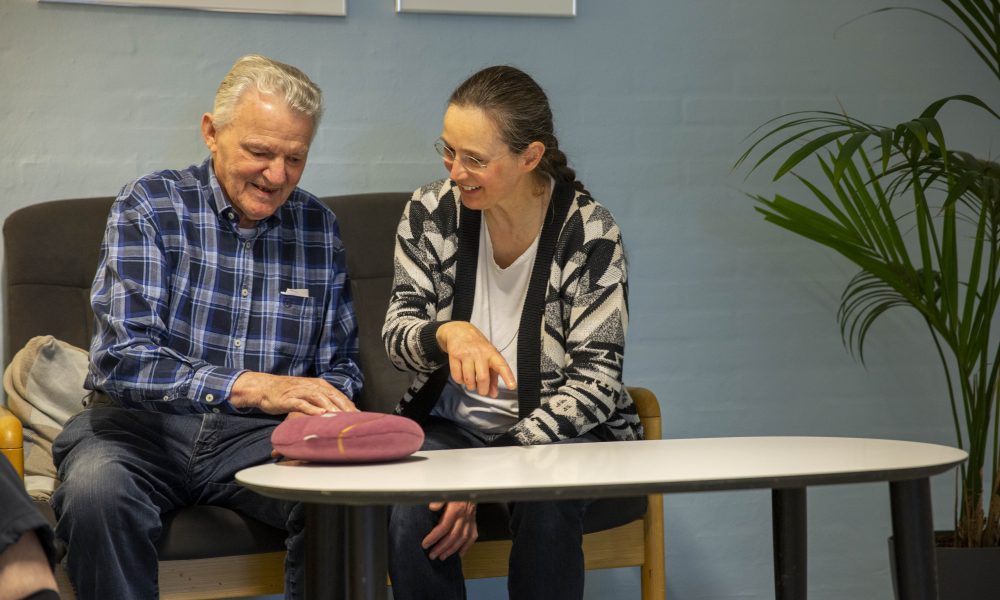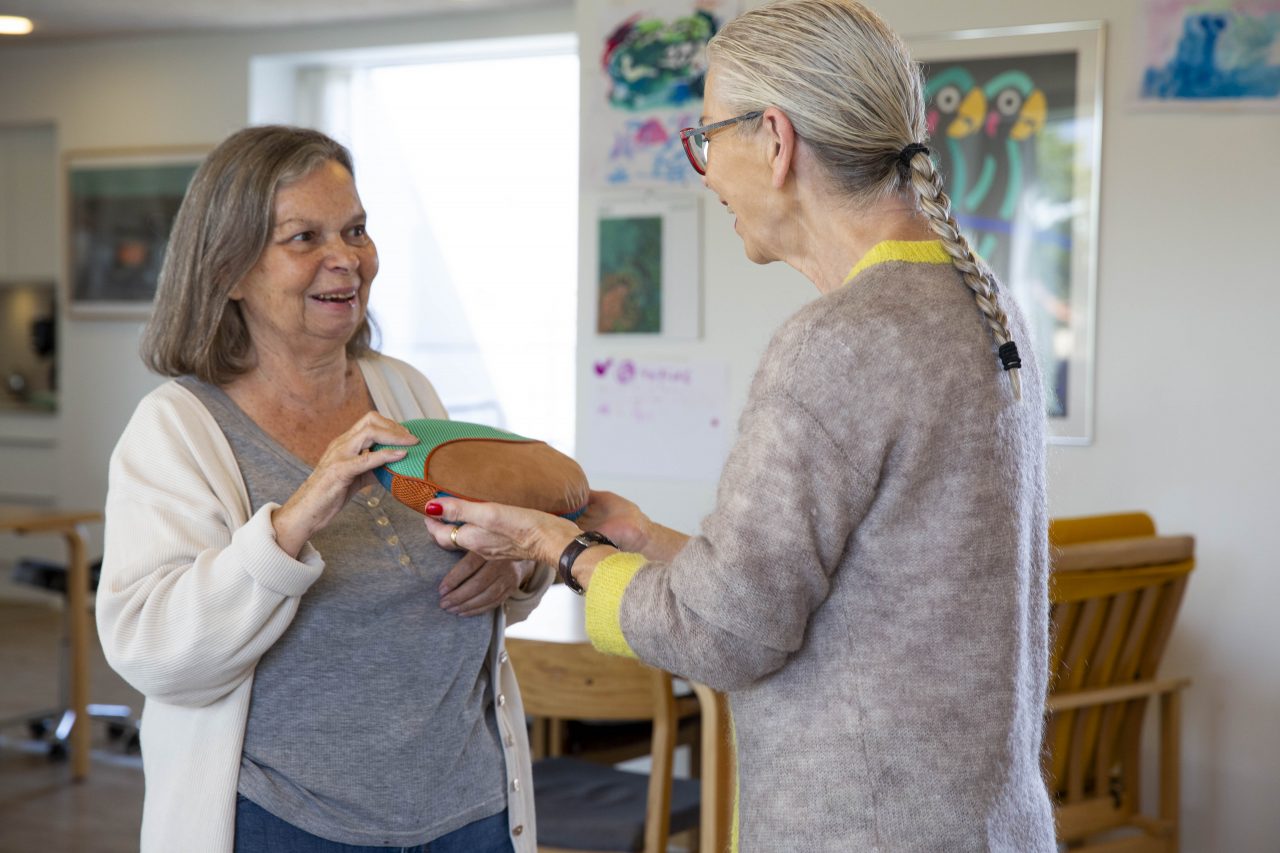
Music can be extremely powerful. NR Times meets inmu touch, the company behind the multi-sensory stimulation tool that makes living with dementia a little easier.
We listen to, take part in, and dance to music throughout our entire life.
Now, it is becoming apparent that music is increasingly beneficial to people with dementia, reaching parts of the brain in ways other forms of communication can’t. It can be one of the most powerful ways to trigger positive feelings, unlock memories and connect with others – even where the ability to communicate has been lost.
inmu – which stands for “interactive music” – is a non-invasive, musical sensory cushion that aims to make the life of patients with dementia easier by bringing peace to the mind and body through music and vibrations. Its soft surface stores advanced sensor technology that activates with a simple touch, creating musical soundscapes which stimulate the senses and help relieve stress, anxiety and difficulties concentrating.
“You are creating music without having to play an instrument,” explains MSc software engineer, co-founder and CEO of inmutouch.com.
He was inspired to create inmu after his mother-in-law was diagnosed with dementia. At the time, she was using robot toys to cope with the disease.
“It was difficult for us, as a family, to see her spending her time with a puppet. We started looking for a better solution, but we didn’t find one. Operating technical or electronic devices becomes really difficult for people with dementia, so our mission was to create a tool without any power or control buttons.
“I remember I was in a nursing home when a guy started to play the piano,” Hansen continues.
“It didn’t sound great but that was the moment that got me thinking, what if we could make something that could make it possible to make beautiful music [without having to play an instrument]?
“No one had developed a product like this before. So we came up with the idea of a product that would combine music and the calming and soothing effect of a cat purring. That let us to the invention of the inmu.”

inmu allows people to enjoy a unique music universe
Depending on the progression and stages of the disease, simple things become difficult for dementia patients. Often, they may have trouble keeping themselves safe and they may require around-the-clock support.
Most of them are left unable to participate in regular everyday life, losing interest in activities they used to enjoy, and becoming less likely to even try them. They soon start to forget words, names or things they’ve said, finding it increasingly hard to understand the world around them.
As dementia affects more of their brain, patients may start to lose their ability to do things they used to and forget objects they made use of.
“People with dementia can’t remember anything but their muscles and bodies can,” says Hansen.
This is called muscle memory, a procedural form of memory that involves consolidating a specific motor task into memory through repetition allowing people to perform motor skills with little conscious effort.
“With inmu, people with dementia engage in group activities and after they use it once, they remember how to use it the next day. Even if they can’t remember what it is, they will start shaking it, doing the movement they did the day before and playing with it. It’s fascinating.”
Because dementia affects the way people perceive the things around them, it also makes them less likely to engage in daily activities consistently.
“We wanted to come up with a new concept that would give people the motivation to continue to train and play,” says Hansen. “And I think music makes everything funnier.
“What we’ve heard from people who used inmu is that they feel more relaxed just by sitting with it. People with dementia can’t often practice mindfulness or meditation, but they are the ones who actually need it most. Inmu can give them a different experience and help them relax.
“It’s humbling to hear how it can change people’s lives.”
After two years in the making, the company has also launched an inmu version for kids. Described as a musical everyday friend, the cushion creates a unique sensory experience and provides a safe space for kids, helping them to find peace and comfort.

The music starts when the cushion is touched and slowly calms down when it is stationary
“We’ve focused on bringing a tactile element to it,” says Hansen. “Following a line on the tactile element, the kids can notice a small change in music and feel the soft vibrations that provide a sense of closeness and safety. I would definitely encourage parents to try it.”
While the founder can’t reveal anything about the company’s projects, he says inmu touch has exciting products coming.
“Our ultimate goal is to continue helping people and we have a lot of plans and ideas for the future.”
To find out more about inmu, visit inmutouch.com.








